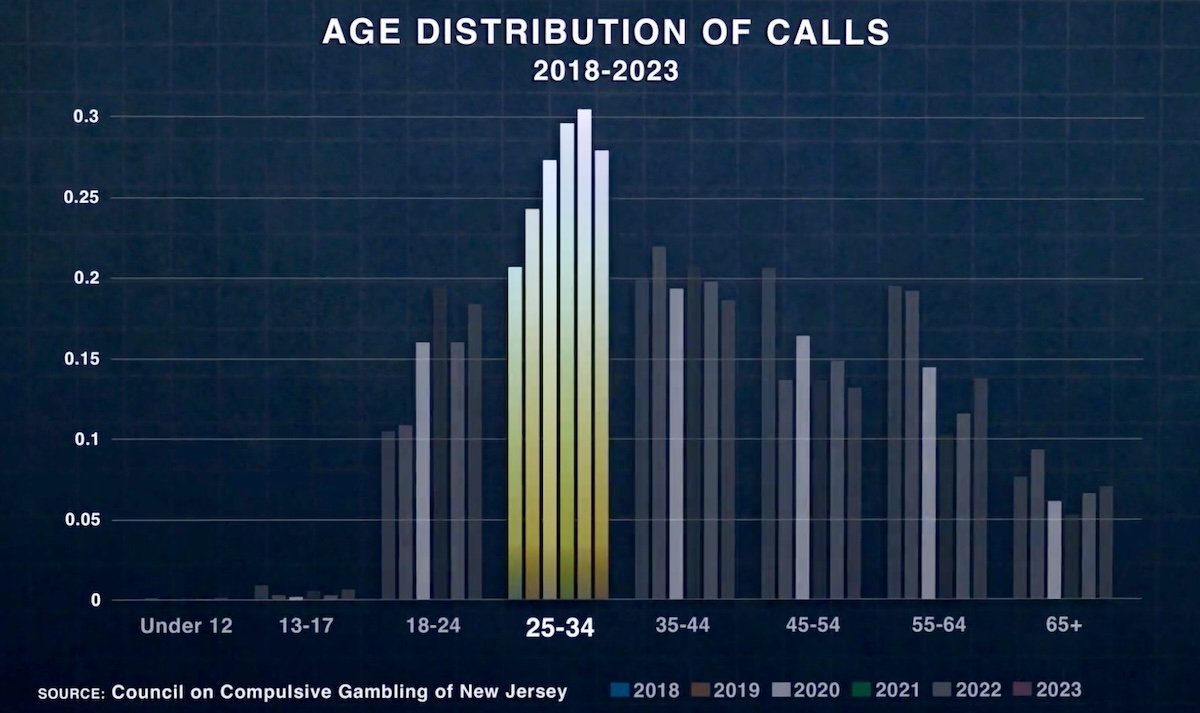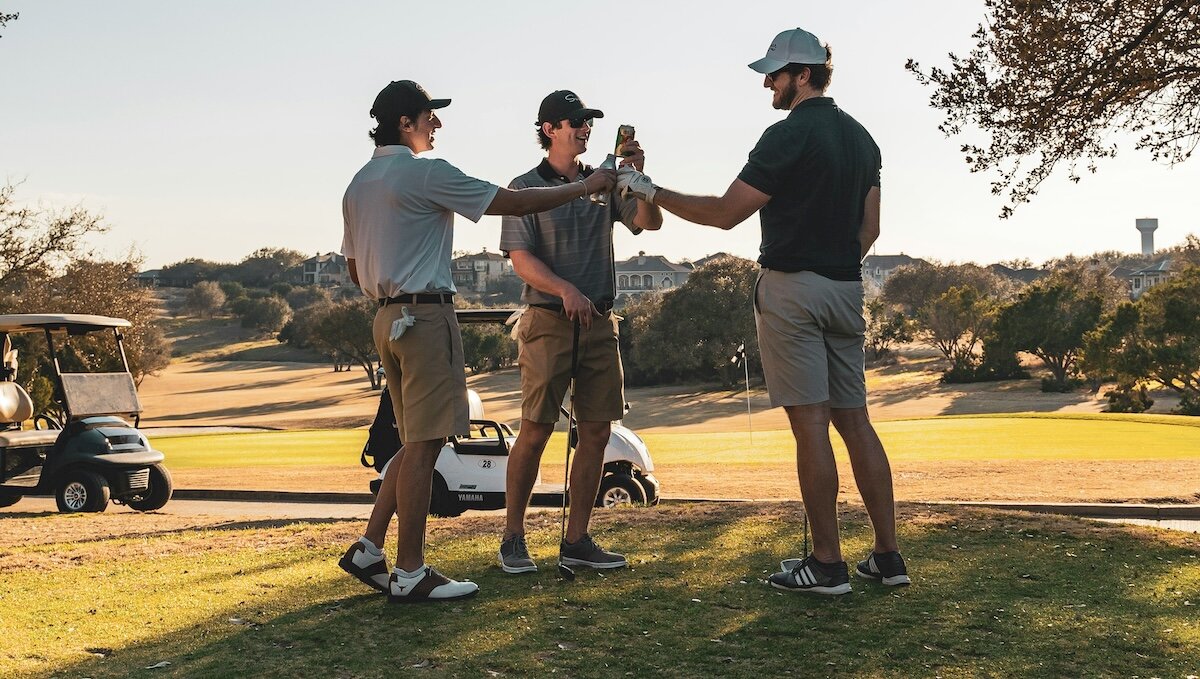Gambling and golfing have been tethered together since the rules of the game were first established in 1744. Friendly wagers between twosomes, threesomes, and foursomes are commonplace on America’s courses. Golf Digest (GD) reports that 80% of male golfers 18 and up gamble when they play.
“There is no participation sport in the United States that is as closely connected with wagering than the game of golf. Most recreational golfers wouldn’t consider playing a round of golf with friends without some kind of bet on the outcome, whether it was for a beer, a $5 Nassau, or something more significant.”
Golf Datatech
It’s generally a harmless activity, and because most participants are betting on their own performance it removes random chance from the equation. Furthermore, wagers are generally small (relatively speaking) with 95% betting under $200 per round. That being said, stakes are high for some:
“Riding out to the first tee, Eddie explains that he does not play golf to relax. He thrives on the pressure that comes with high-stakes betting and every stroke counting. The founder of a successful company and in his early 50s, Eddie says he likes to test his skill, his mettle, his ability to keep from unraveling under big-money pressure. “I’ve had countless situations with 10-footers on the 18th where sinking it means the difference between winning $5,000 and losing $5,000,” he says. “That’s a $10,000 swing in just one shot! People on the practice green fantasize about putting for a U.S. Open win. We have situations like that all the time. The pressure is on, and something serious is at stake.”
‘We’re Probably a Little Sick’ | Golf Digest
Stakes are even higher for certain segments of the population. For them, friendly wagers can become problematic for mental and behavioral health. For this reason we ask that recreational golfers read ahead to ensure that they (you?) are not placed at-risk when asked to participate in friendly wagers.
What a Segment of Recreational Golfers Needs to Consider When it Comes to Betting on the Course
Do You Fall in a Vulnerability Category?
Golf Datatech, a specialty market research company working within the worldwide golf industry, put together a study that paints a picture of gambling golfers. Findings include the following:
- 84% of total respondents are likely to wager on their own golf game while playing.
- Younger and better players are most likely to bet on the course, as well as on professionals.
- The average wager on professional golf is 48% more than they bet on their own game.
- More than half of all professional golf wagering is done online or via an app.
- A significant percentage of respondents who wager don’t understand the odds, as well as other insights into both wagering on their own game as well as on professional golf.
There are important takeaways from this data.
For one, given that 80-84% of golfers gamble, conclusions can be drawn about the volume of problem gambling among those involved in the recreational sport. Approximately 2% of the U.S. population has a gambling problem. Applying the percentages above to the more than 25 million golfers in America, it can be concluded that up to 420,000 golfers on our nation’s courses should not be participating in so-called friendly wagers. If you have a gambling problem, no form of gambling (including wagering on oneself) is OK as it’s a gateway and a trigger.
More concerning, is the data which points to younger golfers being more inclined to bet on the course. The data also shows a concurrence between young golfers betting on the course, and on professional tournaments, the latter of which they wager in higher amounts via online sportsbooks. The fact that they have limited understanding of how golf betting odds work piles on the problem. Please recall that the young male demographic is at the center of the sports betting behavioral health crisis. Since the U.S. Supreme Court removed the federal ban on the activity in 2018, cases of problem gambling have risen at a record pace. Data confirms that young American adult males are being threatened the most.

Vulnerability comes down to more than age and gender. Gambling disorder cooccurs with certain mental and behavioral health disorders, including the following:
- Anxiety
- Bipolar Disorder
- Depression
- Schizophrenia
- Substance abuse disorders (i.e. AUD)
If you suffer from one of the above, you could be placed at risk by participating IF course culture is wrought with triggers and peer pressure to make wagers. Moreover, whether you fall in the vulnerable category or not, it’s important to reassess your relationship with gambling prior to getting involved with on-course betting. View signs and symptoms of gambling disorder, and take the following 5-minute quiz to find out if you may have a problem:
A Call to Change Gambling Culture on the Course
Admittedly, there’s a double-edged sword being swung along with a golf club when considering what has been laid out above. Research shows that golf can be therapeutic for people suffering with mental and behavioral health disorders. By no means are we suggesting that those who are vulnerable to problem gambling skip tee-time. Instead, there needs to be a fundamental shift in course culture so that there is no peer pressure to gamble when on the green. For you, this begins one twosome, threesome, and foursome at a time. Confirm with your party in advance that you’e not comfortable with gambling on your game. If they can’t accept that at first, consider confiding in them (if close friends or family) at which point they should be empathetic. If they’re not, find a different group to play with, or enjoy solo outings until you do.
Concerned About Your Relationship with Gambling?
CALL +1 (877) 426-4258
OR
Email [email protected]


